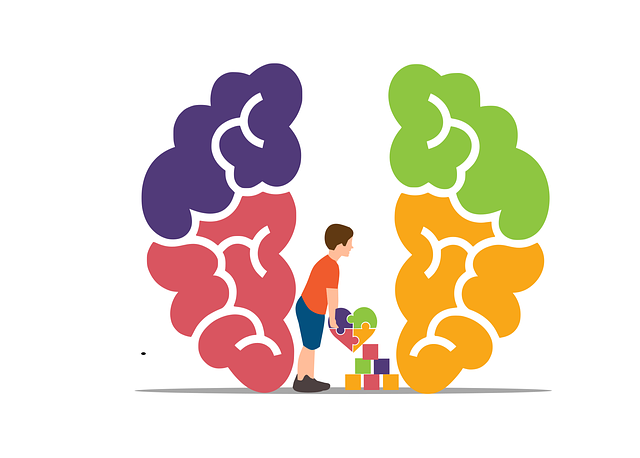Burnout among healthcare providers, characterized by stress, irritability, and reduced efficacy, is a significant concern. Early recognition is crucial for well-being and patient care quality. Effective strategies include incorporating therapy for mindfulness into practices to manage stress, improve emotional regulation, and enhance focus. Stress management workshops and public awareness campaigns destigmatize mental health conversations, encouraging self-care. Mindfulness Therapy improves mental well-being, reduces anxiety, and enhances resilience. Simple practices like breathing exercises and meditation, easily integrated into routines, offer moments of calm. Engaging in activities like yoga or walking meditation fosters community and encourages colleagues to adopt mindfulness strategies for professional balance.
Healthcare provider burnout is a growing concern, impacting not just individuals but the entire healthcare system. This article explores effective prevention strategies, with a focus on mindfulness therapy as a powerful tool. By recognizing the signs of burnout and understanding its causes, healthcare professionals can implement practical mindfulness techniques to reduce stress, enhance resilience, and improve overall well-being. Discover how integrating mindfulness into daily practice can lead to a healthier, more sustainable career in healthcare.
- Understanding Burnout Among Healthcare Providers: Recognizing the Signs
- Mindfulness Therapy as a Powerful Tool for Prevention
- Practical Strategies for Integrating Mindfulness into Daily Practice
Understanding Burnout Among Healthcare Providers: Recognizing the Signs

Burnout among healthcare providers is a growing concern, with high stress levels leading to physical and emotional exhaustion. Recognizing burnout early is crucial for maintaining provider well-being and patient care quality. Common signs include increased irritability, cynicism towards patients or work, reduced efficacy, and feelings of detachment from job responsibilities. These symptoms often manifest gradually, making it essential for both individuals and organizations to foster a culture that promotes self-awareness and open communication about mental health challenges.
One effective strategy is incorporating therapy for mindfulness into healthcare practices. Mindfulness techniques help providers manage stress, improve focus, and enhance emotional regulation, thereby reducing burnout risk. Additionally, organizing stress management workshops within the organization can equip staff with tools to cope with demanding situations. Public awareness campaigns development that highlight the importance of mental health in healthcare can further support efforts to destigmatize conversations around burnout and encourage professionals to prioritize self-care alongside patient care.
Mindfulness Therapy as a Powerful Tool for Prevention

Mindfulness Therapy has emerged as a powerful tool in healthcare settings, offering a promising approach to prevent burnout among providers. This therapeutic technique encourages professionals to focus on the present moment, cultivating awareness and acceptance of their thoughts, feelings, and bodily sensations. By integrating mindfulness into daily practices, healthcare workers can enhance their emotional resilience and reduce stress levels. Studies have shown that Mindfulness Therapy significantly improves mental well-being, with participants reporting lower rates of anxiety, depression, and burnout symptoms over time.
Effective communication strategies are also integral to this process. When healthcare providers prioritize open dialogue with patients and colleagues, it fosters a supportive environment. This, in turn, enhances job satisfaction and reduces the risk of mental health issues, as identified in the Risk Assessment for Mental Health Professionals. By combining Mindfulness Therapy with robust communication techniques, healthcare organizations can create a culture that prioritizes mental wellness, ultimately preventing burnout at its root.
Practical Strategies for Integrating Mindfulness into Daily Practice

Incorporating mindfulness into daily practice has emerged as a potent strategy for healthcare providers to combat burnout and enhance their mental wellness. Beyond its therapeutic benefits, mindfulness offers a practical approach to managing stress and improving overall well-being. Simple practices such as mindful breathing exercises and meditation can be easily integrated into busy schedules, providing moments of calm amidst the chaos of patient care.
Therapy for Mindfulness, in conjunction with regular practice, has been shown to significantly reduce symptoms of anxiety relief and improve mood management. Engaging in mindfulness activities like yoga or walking meditation allows healthcare providers to disconnect from work-related stresses and reconnect with their inner selves. As part of a Mental Wellness Podcast Series Production, sharing these practices can foster a sense of community and encourage colleagues to embrace similar strategies for maintaining balance in their professional lives.
Healthcare provider burnout is a pressing issue, but with the right tools and strategies, it can be mitigated. Mindfulness therapy emerges as a powerful ally in this fight, offering proven benefits for stress reduction and improved well-being. By integrating mindfulness into daily practice, healthcare professionals can enhance their resilience and prevent burnout. Practical strategies outlined in this article provide a solid foundation for incorporating mindfulness, fostering a healthier work environment, and ensuring better patient care.














